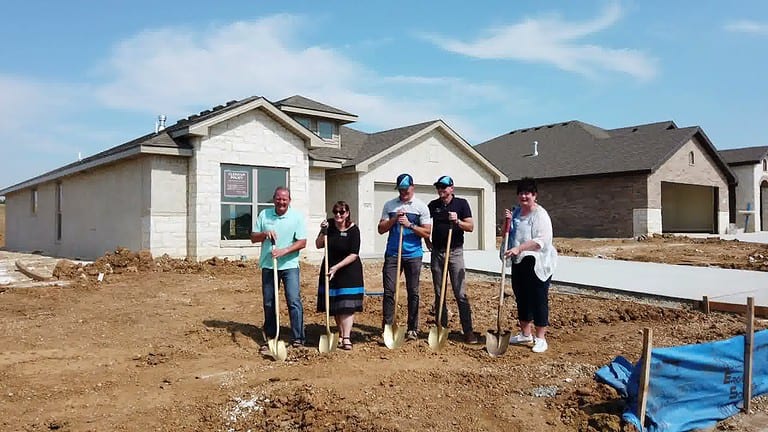Navigating Your First Purchase: The Essential Guide for First-Time Homebuyers
Embarking on your first home purchase journey? You’re likely to dive into online searches for homes, realtors, and solicit all the tips and advice you can gather. The internet is awash with information – some excellent, some less so. This guide aims to sift through the noise and bring you the essentials. As a first-time buyer, it’s easy to dream big – envisioning homes with walk-in closets, screened porches, fireplaces, fenced backyards, and master bath Jacuzzis. However, aligning your desires with your actual needs is crucial.
Key Takeaways
- Align your desires with your needs by prioritizing.
- Assess your financial readiness before diving into house hunting.
- Determine your homeownership goals to make informed decisions throughout the process.
- Align your desires with your actual needs when setting expectations for your first home.
Setting Realistic Expectations
Aligning Desires with Needs
When embarking on the journey of purchasing your first home, it’s crucial to weigh the features and benefits you’re seeking in a new home and prioritize them . Reflecting on your motivations for wanting a certain type of house can reveal much about your true needs. Understanding these motivations can help you identify what aspects are essential in a new home and what aspects are more negotiable.
By listing the features and benefits you’re seeking in a new home in order of priority, you maintain perspective, ensuring that your house hunt is driven by your true objectives rather than comparison or aspiration.
To effectively align your desires with your needs, consider creating a list of non-negotiables and nice-to-haves:
- Must-Haves (e.g., commute distance, fenced yard for pets, good school district)
- Nice-to-Haves (e.g., extra bedroom, updated kitchen, scenic view)
Keep this list handy while browsing home listings to focus your search on properties that meet your core requirements while remaining open to features that would be a bonus. Remember, your first home does not have to be your forever home; you can always upgrade as your needs and financial situation evolve.
Understanding Financial Readiness
Understanding your financial readiness is a pivotal step in the home buying process. Assessing your financial situation thoroughly will set the foundation for a smooth journey towards homeownership. Before you start house hunting, it’s crucial to evaluate your budget, credit score, and debt-to-income ratio. This evaluation will help you set realistic expectations and prevent the heartache of falling for a home that’s beyond your financial reach.
Financial readiness is not just about having enough for a down payment; it’s about ensuring you can sustain homeownership without compromising your financial stability.
Here’s a quick checklist to gauge your financial readiness:
- Save for a down payment, typically 20% of the home’s price.
- Get pre-approved for a mortgage to clarify your budget and strengthen your offer.
- Factor in additional expenses such as closing costs and moving expenses.
- Plan for ongoing costs like property taxes, insurance, maintenance, and any potential renovations.
Remember, the goal is to find a balance between your desires and what you can realistically afford without overextending yourself financially.
Navigating the House Hunting Process
Resale vs. New Construction
When it comes to buying a home, the decision between new construction and resale homes is a crucial one. Each option comes with its own set of advantages and disadvantages, and understanding them is essential for making an informed choice. For many buyers, it’s worthwhile to consider both resale and new construction – but it’s important to keep in mind that the process may be slightly different for each.
Evaluating Resale Properties
Resale homes are what most people are most experienced with and most often associate with house hunting. Any home that isn’t brand new is considered resale. Here are some key steps to take when evaluating resale homes:
- Browse listings online: Online marketplaces make it very easy to get a feel for the homes available in your area. Start with sites like Zillow and Realtor.com – start with a broad search and narrow down criteria based on your priority list. Save individual listings you like, and save searches to get updates as new homes that meet your criteria hit the market.
- Find a reliable real estate agent: A good real estate agent is essential when evaluating resale homes. When choosing a real estate agent, look for qualities such as experience, knowledge of the local market, good communication skills, and a strong track record of successful transactions.
- Attend open houses: You can drop in on any open house – just be sure to let the real estate agent working know if you already have an agent. Open houses are a great way to see homes with your own eyes (much different than online listings) and get a feel for the surrounding areas.
- Schedule viewings of target properties: Work with your agent to set up tours of homes you’ve seen listed that meet your criteria.
- Narrow down your list and make your first offer: When you’re ready, and find a home you love that’s in your price range, work with your agent to submit an offer. Your agent will help you prepare a competitive and all-encompassing offer.
Evaluating New Construction Properties
New construction homes are very popular among first-time home buyers for many reasons. Brand new homes are typically high quality, aesthetically pleasing, and low maintenance. Plus, buyers are often able to customize many of the features of a new build home. In many markets, especially where resale homes sell very quickly and draw numerous competing offers, new construction can also be a great value.
New construction builders are all different, and their processes vary, but generally speaking, here are the key steps:
- Browse new construction listings online: Sites like Zillow and Realtor.com have many new construction listings. You can search for them specifically, or simply keep an eye out for them when browsing your saved searches.
- Identify builders that meet your criteria: As listings catch your eye, note the builders that have styles, price ranges, and features that you find appealing. Keep in mind that new construction listings are often customizable, so you may be able to “mix and match” to get the best of several listings you like. When you have a list, research those builders and see where they’re building.
- Work directly with builders you like: For new construction homes, you generally don’t need a real estate agent – you can work directly with the builder. Since new build homes are brand new, are covered by defined warranties, and are sold at specific prices based on floor plan and selections, there’s no need for an agent to help you negotiate things like price and outstanding repairs. Because of this, it’s best to reach out directly to builders and work with their sales team.
- Visit model homes in communities you like: New construction builders love to show their homes to interested prospects, and will welcome you with open arms. Check with each builder to see if there’s an option to schedule, or just drop by when convenient. The staff on-site will help you narrow down your criteria and will show you properties that fit within it.
Essential Steps to Becoming a Savvy First-Time Home Buyer
Assessing Financial Readiness
Before embarking on the journey of homeownership, it is crucial to assess your financial readiness. This involves a thorough evaluation of your current financial situation and understanding the various costs associated with purchasing a home.
To start, consider the following key points:
- Save for a down payment, typically around 20% of the home’s price.
- Get pre-approved for a mortgage to determine your budget and strengthen your offer.
- Plan for additional expenses such as closing costs and moving expenses.
It’s essential to have a clear picture of your finances to avoid any surprises during the home buying process. Ensure you have a robust savings plan in place and are aware of all the costs involved.
Remember, financial readiness is not just about having the down payment; it’s also about being able to sustain homeownership. This includes ongoing costs like mortgage payments, property taxes, insurance, maintenance, and potential renovations. By being financially prepared, you position yourself as a serious buyer and can navigate the home buying process with confidence.
Determining Homeownership Goals
Before embarking on the journey of house hunting, it’s crucial to define your homeownership goals. This step is about more than just envisioning your ideal home; it’s about understanding how your home fits into your life and future plans.
Consider the following aspects to help you define your preferences and priorities:
- Location: Proximity to work, schools, and amenities.
- Type of Home: Single-family, condo, or townhome?
- Size and Layout: Number of bedrooms, bathrooms, and the overall flow of the space.
By clearly outlining your homeownership goals, you can streamline the search process and focus on properties that truly meet your criteria.
Remember, your goals should reflect a balance between your desires and practical needs. They will serve as a guide throughout the home buying process, ensuring that you make decisions that align with your long-term satisfaction and financial stability.
Navigating the House-Hunting Process
Once you’ve aligned your desires with your needs and assessed your financial readiness, it’s time to start looking for your dream home! House hunting is more than just viewing properties; it’s a strategic process that requires focus and preparation. Here are some tips to help you navigate this exciting journey:
- Attend open houses: Get a feel for different neighborhoods and home styles, noting what resonates with you.
- Work with your real estate agent or new construction builder: They can narrow down your search to properties that fit your criteria and provide valuable insights.
- Create a checklist: Prioritize your must-haves and be open to compromise, keeping your budget in mind.
Remember, a thorough home inspection is crucial. It can reveal issues that may not be visible during a showing, potentially saving you from costly future repairs.
When you find a property that seems like a match, consider the following:
- Research the neighborhood: Look into schools, amenities, and the overall community vibe.
- Understand the homeowners association: If applicable, review the HOA documents to know the rules and fees.
By approaching the house-hunting process with a clear strategy and the right support, you can confidently make informed decisions and move closer to securing your first home.
Conclusion
In conclusion, navigating your first home purchase can be an overwhelming but exhilarating experience. This guide has provided essential tips and a step-by-step approach to help first-time homebuyers embark on this journey with confidence. From assessing financial readiness to finding a reliable real estate agent or builder, the key takeaways emphasize the importance of informed decision-making and goal setting. By understanding the process and avoiding common pitfalls, first-time homebuyers can approach the purchase of their first home with confidence and save money in the long run.
Frequently Asked Questions
What are some common challenges first-time homebuyers face?
First-time homebuyers often face challenges such as saving for a down payment, navigating the complex world of real estate, and understanding the true cost of owning a home.
How can I assess my financial readiness for purchasing a home?
You can assess your financial readiness by checking your credit report and score, examining your budget, and assessing your ability to make a down payment and pay closing costs.
What steps can I take to align my desires with my actual needs when buying a home?
To align your desires with your actual needs, consider factors such as location, size of the property, amenities, and your long-term lifestyle goals.
Why is it important to establish realistic expectations as a first-time homebuyer?
Establishing realistic expectations helps first-time homebuyers avoid disappointment, make informed decisions, and stay within their budget while searching for a home.
What are the essential steps for navigating the house-hunting process as a first-time homebuyer?
The essential steps for navigating the house-hunting process include setting a budget, researching neighborhoods, attending open houses, and working closely with a reliable real estate agent.



